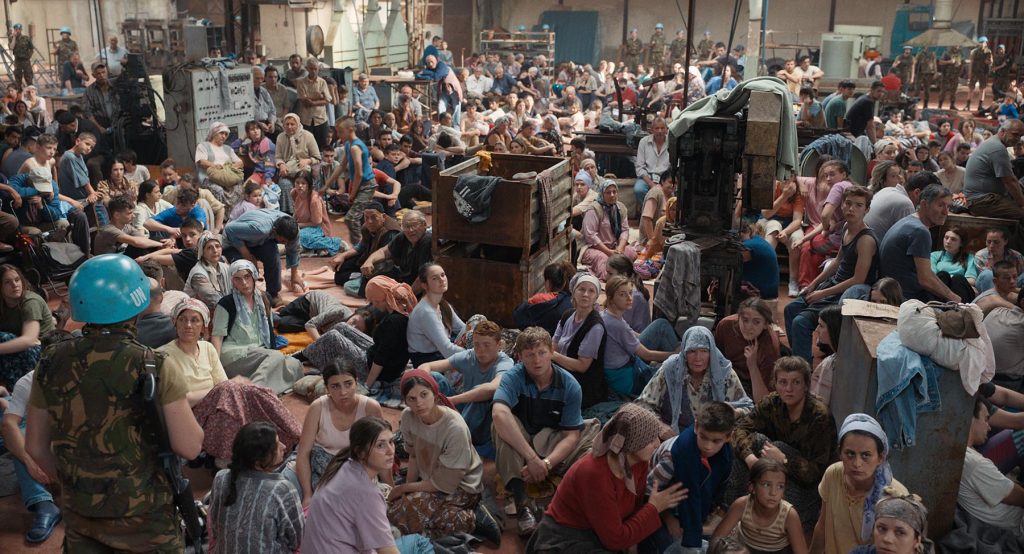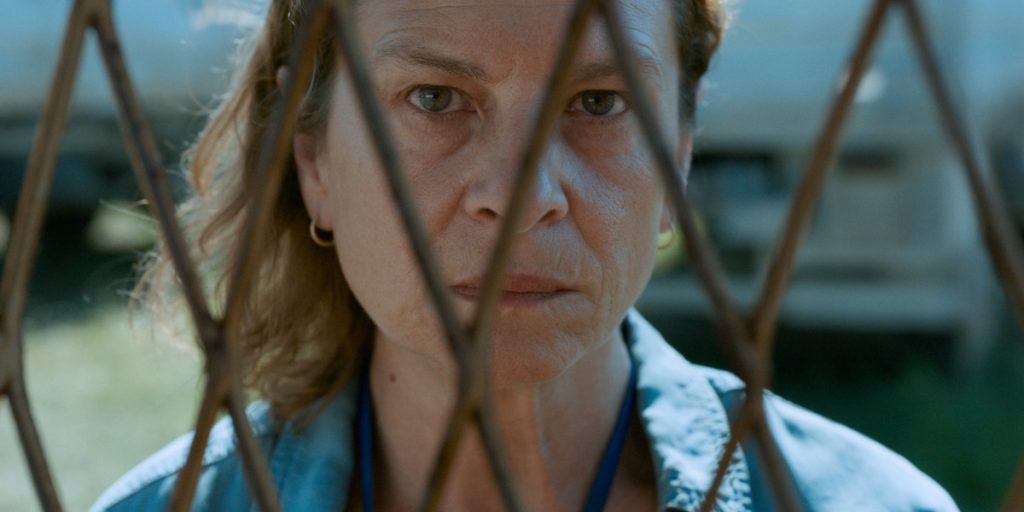Nearly 25 years after the Srebrenica massacre, Quo Vadis, Aida? gives remembrance with its harrowing account of the modern holocaust.
The biggest genocide in Europe since the Second World War took place amidst the Bosnian War, in a period of complete turmoil for Southeast Europe. Director Jasmila Zbanic is no stranger to the topic, having previously covered the war in Grbavica: The Land of the Dreams. But in her latest film, Quo Vadis, Aida?, she shifts her focus directly to the Srebrenica genocide — the murder of over 8000 Bosnian Muslims by Serbian military forces, and the international community’s failure to provide a safe haven for these victims. Quo Vadis, Aida? recounts the conflict from the perspective of a United Nations member undergoing an effort to save her family from the oncoming slaughter. This Oscar shortlisted film, made with the colossal collaboration of several European nations, is nothing short of saddening, and it is sometimes frustrating to experience. Nevertheless, it is an important and well comprised account of these events, paying homage to the women who lost loved ones during this tragedy. A stained moment in history, Quo Vadis, Aida? delivers long awaited truth and justice.
The shocking events of July 1995 are seen through the eyes of former school teacher turned translator Aida Selmanagic (Jasna Djuricic), who works locally for the United Nations. At the film’s beginning, she sits alongside the UN commanders and the Srebrenica mayor, helping translate the latter’s plead for defense against the Serbian army (who have been terrorizing the nation city to city). Aida senses an impending danger, and despite the assurance of the UN to defend its sanctuary city, her fears come true. The Serbians march into the city and take over, forcing thousands of civilians to flee towards shelter. A safe zone nearby opens their gates to only a fraction of the refugees, due to its limited capacity, and leaves the protected ones with no food, water or medicine.
Colonel Ratko Mladic (Boris Isakovic), the leader of the Serbian Army, begins calling the shots: in compliance with the UN, he is given access to the lot, and begins to transport both men and women back to the city, with their safety guaranteed. But unbeknownst to the international committee, the males are separated from the women and taken to a secure spot where they are executed. To Aida, the matter is much worse: her husband and sons are among the refugees seeking shelter. With little foreign aid, and the Serbians rounding up the males for slaughter, Aida is powerless, but she desperately attempts to give them the protection they will need to survive what’s to come.

By having the film unravel through Aida’s perspective, viewers get the necessary context to understand the situation. She is present at the failed negotiations with the mayor, the UN generals stressing out over the lack of orders from a higher authority. She sees firsthand how the UN peacekeepers fail to maintain the situation. On top of this, Aida also witnesses her fellow neighbors, friends and family in peril, many of them separated by the army, others slaughtered right outside the safe zone. What fuels the emotional layers of the story is the incorporated family drama – the despair of Aida racing against time to save her all-male family.
Unlike many other movies about genocide, such as Hotel Rwanda and Schindler’s List, Aida is not portrayed as the savior of these victims. Her key role in this losing battle is merely that of protecting her husband and children. This could initially be seen as an act of selfishness, but, keeping in mind the negligent foreign institutions that stood by and watched the crimes against humanity unleash, it is the heroic aspect of this story instead. Zbanic’s depiction of these events is also told without exploitation, or the need to shock with graphic images, as the film almost never resorts to that. Yet, the imagery remains haunting enough, and the off-screen slaughter and the sounds of gunfire are enough to keep you uneasy.
Quo Vadis, Aida? unravels as a work of horror in the war genre. Director Jasmila Zbanic revisits a dark era in history with a film that strongly reflects on the injustices that took place nearly 25 years ago. The film is gut-punching at times, and it is unbelievable to imagine that such events actually occurred in recent memory. Today, the killings are either denied or justified by the mainstream Serbian community, and the United Nations have not yet prosecuted all those who were involved in them. The film’s epilogue, which takes place after the war has come to an end, is perhaps its most powerful scene. School children sing joyfully, reminding us of hope of future generations that’ll prevent these atrocities from happening again. For the scars have not yet healed, many still seek justice, and this film may be the closest they’ll ever get to it.
Quo Vadis, Aida? premiered at the 38th Miami Film Festival with a physical screening at the Silverspot Cinema on Sunday, March 7, 2021, and a virtual screening on March 8.

